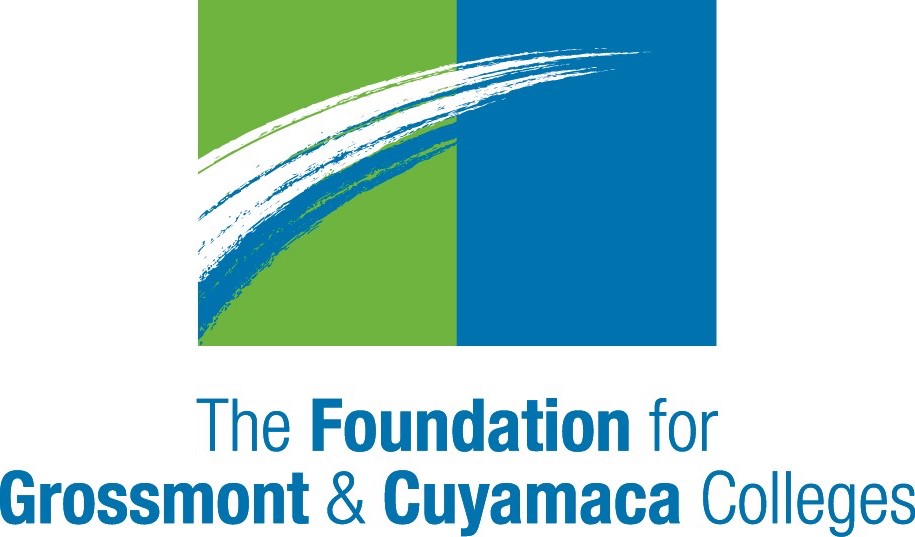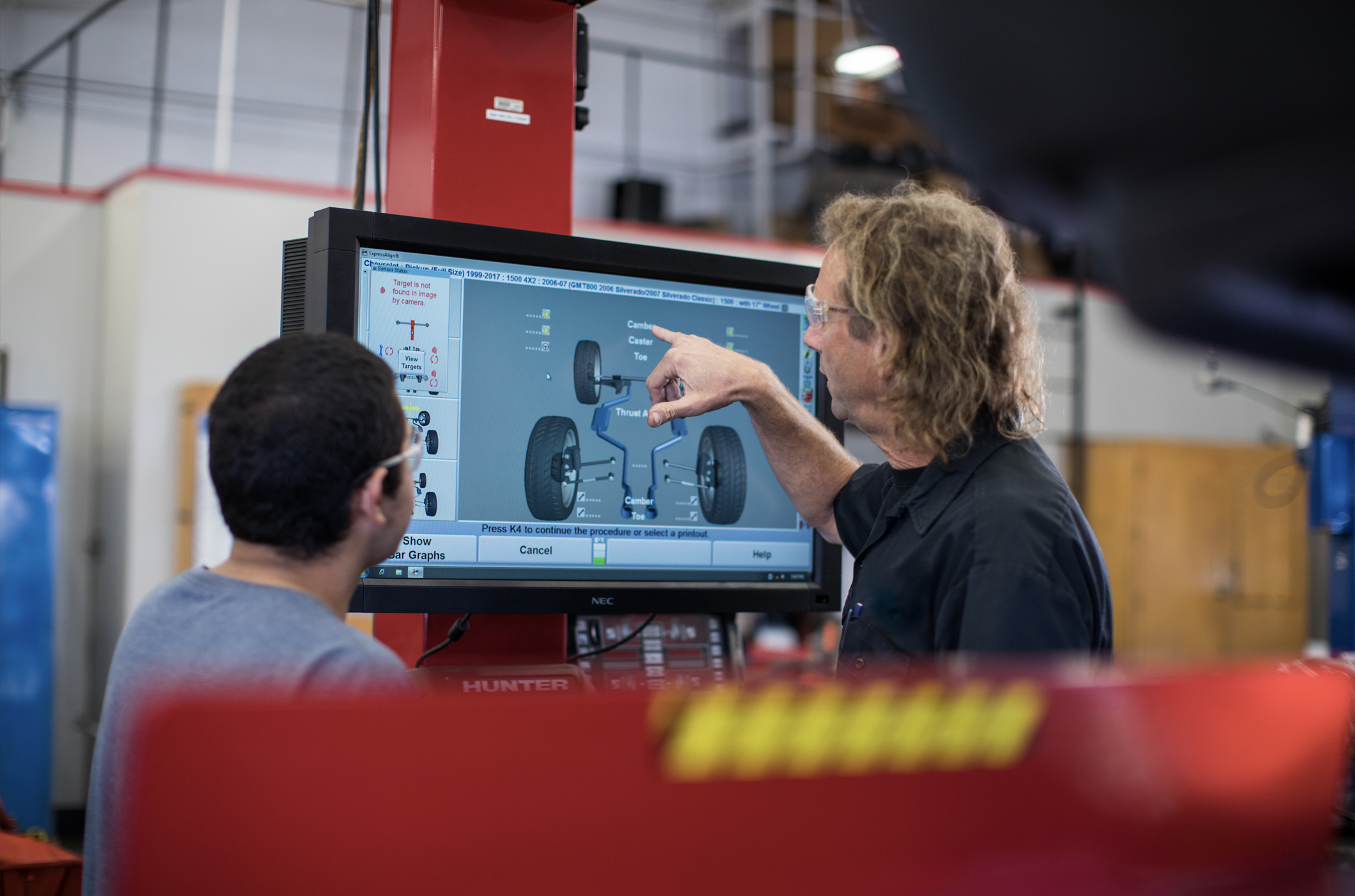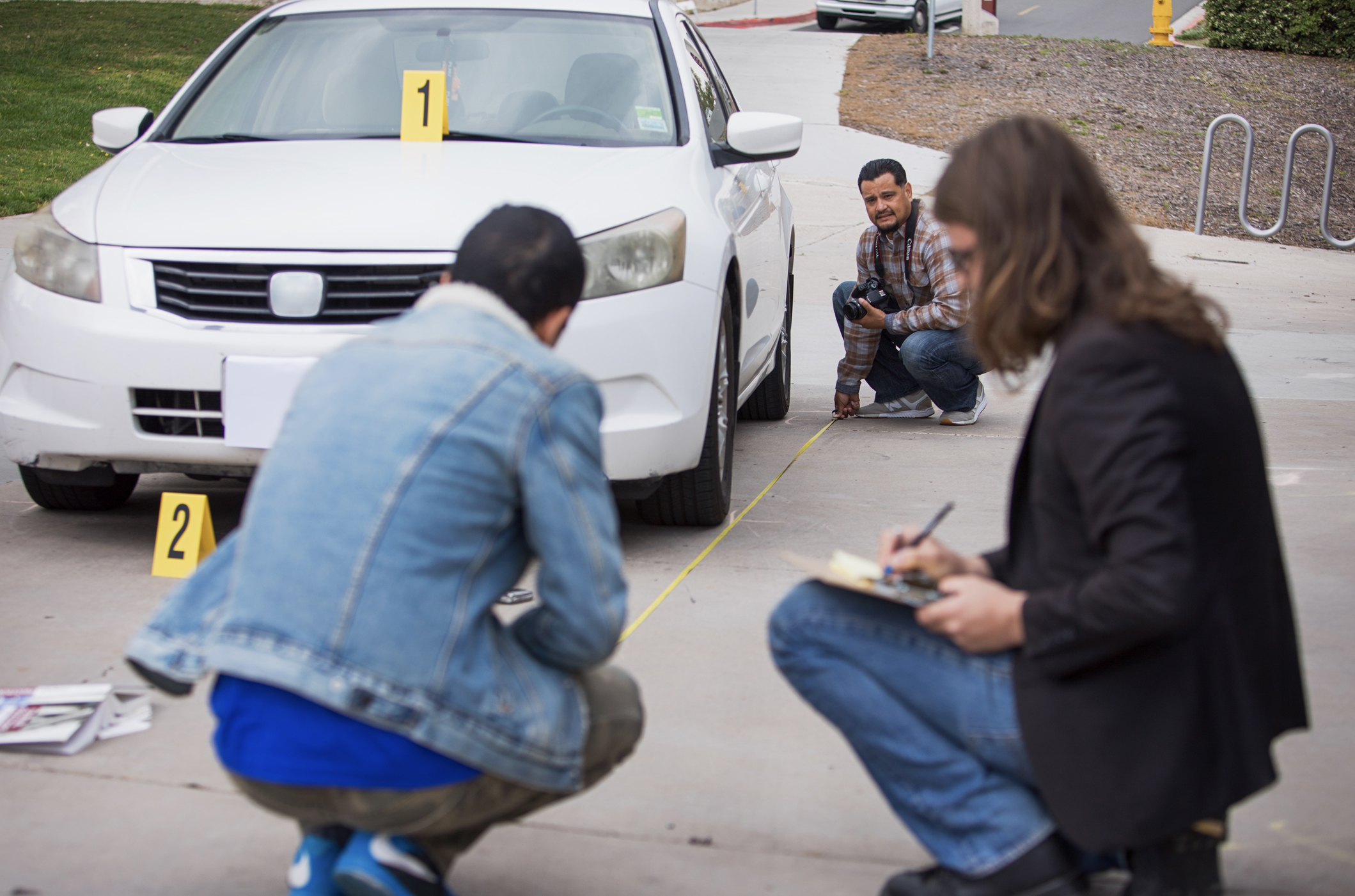- Menu
- Home
- Our Campus Community
- » Our Colleges
- » Our Students
- » Employee Donors
- » Board of Directors
- » Donor Spotlight
- » Partners
- » Alumni
- » Retirees
- Impact
- » Community Impact
- » » Grants & Programs
- » » Latest News
- » » Mini Grants
- » Scholarship Impact
- » » The Promise Plus
- » » Named Scholarships
- » » About Scholarships
- Did You Know?
- » Book Club
- » Programs & Services
- » » NextUp Former Foster Youth
- » » Formerly Incarcerated Students
- Ways to Give
- » Donate Today
- » » Programs & Scholarships
- » » Change Makers
- » » The Promise Plus Program
- » » Charitable Gift Planning
- » Spread the Word
- Contact
The Foundation for Grossmont & Cuyamaca Colleges is dedicated to the success of the students at our colleges. In addition to our efforts at Grossmont and Cuyamaca Colleges, the Foundation manages several grants and programs designed to assist in student learning, retention, and success rates. Here are the highlights of some of the incredible programs managed by the Foundation team.
Binational Border Health
The main roles of the Office of Binational Border Health (OBBH) are to serve as the California Department of Public Health (CDPH) liaison to Baja California state and other Mexican health officials, foster binational partnerships with other U.S.-Mexico border states, assess the health status of border communities, assist in border health program development, inform and educate the general public about border health, and serve as an information clearinghouse.
California Adult Education Program
The San Diego East Region Adult Education Consortium (ERAE) was established in response to the state’s call for the expansion and improvement of the provision of adult education via consortia. Where K-12 adult education programs and community college noncredit programs operated separately and autonomously prior, Grossmont Union High School District, Grossmont-Cuyamaca Community College District, and Mountain Empire Unified School District created an extended learning system that works across academic foundations, workforce development, and community college for seamless transitions into employment and career. ERAE's priorities are:
- Increase student success through the integration of purposeful programs that create career opportunities. Program areas include courses for adult learners completing their high school diploma or high school equivalency certificate; courses for adults with disabilities; courses for immigrants eligible for education services in citizenship and English as a second language and workforce preparation; short term career technical education; and courses preparing adult learners for apprenticeships or supporting child school success.
- Enhance student engagement through holistic transition and support services for all learners.
- Align programs between members and partners for smoother transition to college and career.
- Integrate education and training programs that meet the needs of the regional business community. Measure system changes and performance through shared data collection, aggregation, and analysis.
You can learn more about this California Adult Education Program on ERAE's website, and check out their Transition Services in a Nutshell here.
Foster, Adoptive & Kinship Care Education Program
The Foster, Adoptive & Kinship Care Education (FAKCE) Program is part of a state-wide initiative of the California Community Colleges Chancellor's Office and is based at Grossmont College. FAKCE provides quality training and education to Foster, Adoptive and Kinship caregivers in San Diego County utilizing the skills and expertise of foster parents and other professionals working in Child Welfare. The ultimate goal in training caregivers is to improve the lives of the foster children being cared for by these caregivers - many of which attend classes at Grossmont & Cuyamaca Colleges. For more information, click here.
Joint Special Populations Advisory Committee (JSPAC)
The California Joint Special Populations Advisory Committee (JSPAC) is a committee comprised of educators from K-12, adult education, community colleges, and public and private sector. Together these members work to enhance the Career and Technical Education field, encourage girls, women, boys, and men to explore and enter into training programs and careers that are non-traditional by gender as well as high-wage and high-demand.
Strong Workforce Program
The Strong Workforce Program aims to create more and better Career Technical Education to increase social mobility and fuel regional economies with skilled workers. To develop more workforce opportunity and lift low-wage workers into living-wage jobs, California took a bold step in 2016 to create one million more middle-skill workers. At the recommendation of the California Community College Board of Governors, the Governor and Legislature approved the Strong Workforce Program, adding a new annual recurring investment of $248 million to spur career education (CE) in the nation’s largest workforce development system of 115 colleges.
The Foundation for Grossmont & Cuyamaca Colleges is a 501(c)3 organization (Tax ID: 33-0905402).








